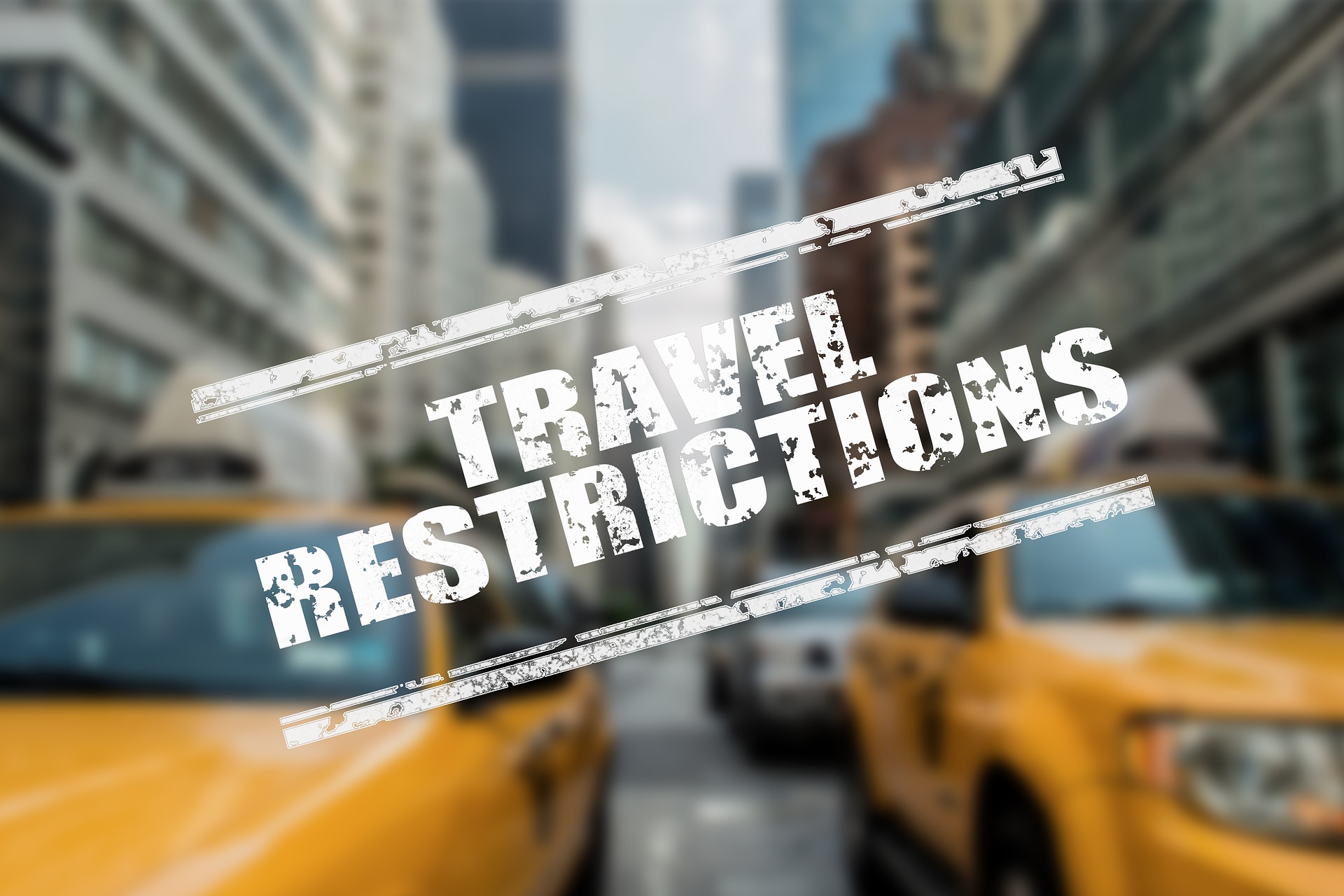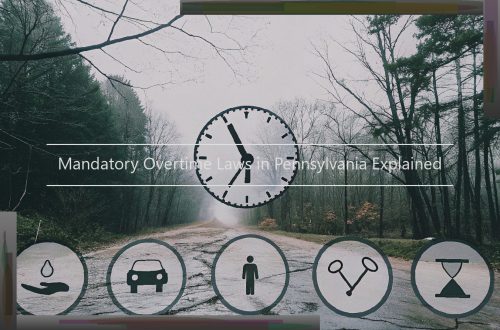
Probation Restrictions: Can You Go on a Cruise While on Probation?
Probation can be a confusing and complex topic, especially when it comes to understanding the specific restrictions that may apply. One of the common questions people ask is: “Can I go on a cruise while on probation?” This question isn’t just about travel; it’s also about the freedom of movement, personal plans, and adhering to legal constraints. In this article, we’ll explore the different facets of probation, the restrictions involved, and specifically, whether or not going on a cruise is permissible.
What Is Probation?
Probation is a court-imposed sanction that allows individuals to remain in the community under certain conditions, rather than serving time in prison. It’s a type of supervised release where the offender must comply with a set of rules and conditions laid out by the court or probation officer.
Types of Probation
Probation can be classified into different types based on the nature of the crime and the offender’s circumstances:
- Informal Probation: Also known as summary probation, typically for minor offenses, without active supervision by a probation officer.
- Supervised Probation: Requires regular check-ins with a probation officer and adherence to specific rules.
- Intensive Probation: For higher-risk offenders, involving frequent reporting, home visits, and stricter conditions.
- Shock Probation: Combines a brief jail term with probation to deter future offenses.
Common Probation Conditions
While probation allows a person to avoid incarceration, it comes with numerous restrictions. Common conditions include:
- Regular Meetings: Reporting to a probation officer as directed.
- Curfews: Adhering to specific timeframes for staying at home.
- Drug and Alcohol Testing: Regular testing to ensure sobriety.
- Employment Requirements: Maintaining a job or attending educational programs.
- Travel Restrictions: Obtaining permission before leaving a designated area or state.
Can You Go on a Cruise While on Probation?
The answer to whether you can go on a cruise while on probation largely depends on the type of probation, the terms set by the court, and the discretion of the probation officer.
Factors That Influence Permission to Travel
Several factors can determine whether or not you’re allowed to go on a cruise while on probation:
- Nature of the Crime: Serious crimes like felonies may impose stricter travel restrictions.
- Compliance with Probation Terms: Demonstrating good behavior and adherence to rules can positively influence a decision.
- Type of Probation: Those on informal probation may find it easier to obtain permission compared to those on intensive probation.
- Length of the Cruise: A short cruise might be more permissible than a long one, as it involves less time away from supervision.
Steps to Request Permission for a Cruise
If you’re on probation and want to go on a cruise, there are specific steps you need to follow:
- Consult Your Probation Officer: Always start by discussing your travel plans with your probation officer. They have the authority to approve or deny the request.
- Submit a Written Request: Provide a formal written request outlining the details of your trip, including the dates, destinations, and purpose.
- Provide Supporting Documents: Attach relevant documents such as cruise tickets, itineraries, and proof of payment.
- Await Approval: The probation officer will review your request and either grant permission, deny it, or escalate it to the court for a decision.
Possible Outcomes of a Travel Request
| Outcome | Description | Implications |
| Approved | You receive permission to go on the cruise. | You must adhere to any conditions set for the trip. |
| Denied | Your request is not approved by the probation officer or court. | You cannot go on the cruise, and any attempt may result in a violation. |
| Conditional | Permission is granted but with specific conditions (e.g., daily check-ins). | You must strictly follow the additional conditions. |
Legal Considerations for Traveling on Probation
When you’re on probation, legal restrictions are paramount. Failing to comply can result in severe consequences, including revocation of probation, fines, or even imprisonment.
Jurisdictional Differences in Probation Terms
Probation terms can differ significantly from one jurisdiction to another. Here are some common differences:
| Jurisdiction | Travel Permissions | Reporting Requirements |
| State Probation | Varies by state; generally stricter for interstate travel. | Regular reporting, sometimes weekly or bi-weekly. |
| Federal Probation | Requires permission from the court or probation officer. | Monthly reporting, with more stringent checks. |
| Juvenile Probation | Travel may require parental or guardian consent, in addition to court approval. | Frequent check-ins, especially for high-risk cases. |
Consequences of Unauthorized Travel
Traveling without permission can lead to serious consequences:
- Revocation of Probation: The court may decide to revoke probation, resulting in imprisonment.
- Fines and Additional Penalties: Monetary penalties may be imposed for violating probation terms.
- Extension of Probation: The probation period could be extended due to non-compliance.
Real-Life Examples: Cruises While on Probation
To better understand the complexities, let’s explore some real-life cases where probationers sought to go on a cruise:
Case Study 1: Approved Cruise for Work-Related Reasons
A probationer, working in a sales job, requested permission to attend a company-sponsored cruise. The probation officer approved the request after confirming the professional nature of the trip and setting conditions for regular check-ins.
- Outcome: Approved with conditions (e.g., daily check-ins via phone or email).
Case Study 2: Denied Request for Recreational Cruise
A person on intensive probation requested permission to go on a recreational cruise. The probation officer denied the request due to the individual’s prior non-compliance and the trip’s perceived lack of necessity.
- Outcome: Denied due to non-compliance history.
Case Study 3: Conditional Approval for a Family Cruise
A probationer wanted to join a family reunion on a cruise. The probation officer granted conditional approval, requiring the individual to remain sober and attend daily virtual meetings with their probation officer.
- Outcome: Approved with strict conditions.
Special Conditions That May Affect Travel
Electronic Monitoring
If you are subject to electronic monitoring as a condition of your probation, traveling on a cruise can pose significant challenges. Electronic monitoring devices, such as ankle bracelets, are designed to track your location in real-time and ensure that you adhere to your probation terms. However, these devices may not function correctly when you are in international waters or in areas with limited satellite coverage, such as certain parts of the ocean. This malfunction can lead to inaccuracies in tracking your location, which might be interpreted as a probation violation.
Substance Abuse Programs
When your probation includes attending substance abuse treatment or counseling, it can complicate your ability to travel. These programs often require regular attendance at sessions, which could be difficult to maintain while you are away from home on a cruise. You may need to make special arrangements for remote sessions, which could involve coordinating with your treatment provider to access virtual counseling services or finding a suitable location to attend sessions while traveling.
Curfews and Restrictions on Associations
Curfews and restrictions on associations can significantly impact your ability to travel, particularly on a cruise. Probation conditions that include a curfew require you to be at your residence during specified hours, which can be challenging to adhere to while on a cruise with a set itinerary and limited communication with your probation officer. Additionally, restrictions on associations limit the people you are allowed to interact with, which can be difficult to manage in the social environment of a cruise ship where you have less control over who you meet.
Cruise Lines and Probation: Understanding Their Policies
Different cruise lines may have their own policies regarding passengers on probation. It’s essential to check with the cruise line before booking.
Cruise Line Policies on Passengers with Legal Restrictions
| Cruise Line | Policy on Passengers with Probation | Additional Requirements |
| Carnival | Case-by-case basis, may require court documents. | Disclosure of probation status at the time of booking. |
| Royal Caribbean | Generally allows, but may have restrictions based on destination. | Advance notice and proof of approval from the court. |
| Norwegian | May deny boarding if criminal background checks reveal probation status. | Legal clearance may be required depending on the port. |
Steps to Take When Booking a Cruise
- Contact the Cruise Line: Inform them of your probation status and inquire about any specific requirements.
- Gather Necessary Documentation: Have court orders, probation documents, and travel permissions ready to present.
- Plan for Contingencies: Be prepared for the possibility of being denied boarding or needing to reschedule.
Alternatives to Cruises: Other Travel Options for Those on Probation
Road Trips
Road trips offer a practical and flexible alternative to cruises, particularly for individuals on probation. Unlike cruises, which often involve international travel and require extensive permissions, road trips allow you to remain within your home country. This reduces complications related to cross-border regulations and makes it easier to obtain approval from your probation officer. You have control over your route and can adjust your plans as needed, which helps in adhering to any curfew or travel restrictions imposed by your probation terms. Planning a road trip also means you can choose destinations that are within the permissible area outlined by your probation conditions, ensuring you stay compliant.
Staycations
A staycation provides an excellent alternative to more traditional forms of travel, such as cruises, particularly for those on probation. By staying within your local area or state, you avoid the complexities of obtaining travel permissions for out-of-state or international destinations. During a staycation, you can still enjoy a break from routine by exploring local attractions, relaxing in a nearby hotel, or visiting friends and family. This approach allows you to take a refreshing break without straying from the geographical limits of your probation, making it easier to adhere to any conditions related to your probationary period.
Domestic Flights
Domestic flights can be a viable alternative to cruises for individuals on probation, especially if you want to travel further than a road trip would allow. These flights stay within the confines of your country, simplifying the approval process since you do not need to navigate international regulations. However, it’s crucial to obtain written permission from your probation officer for the specific dates and destinations of your flight. This ensures that your travel plans align with the restrictions and conditions set by your probation terms. Domestic flights offer a way to visit distant locations without the extended time and complexity associated with cruises, while still allowing you to adhere to your probationary obligations.





